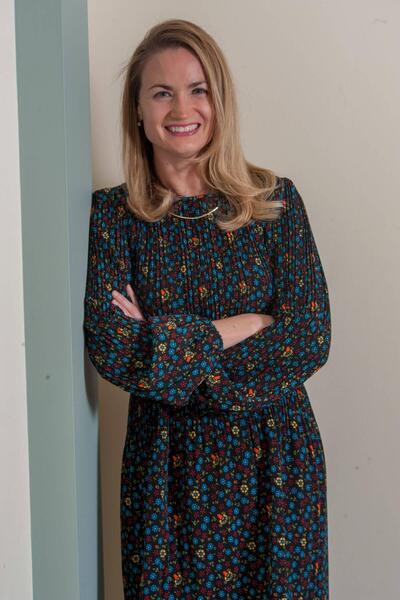As a therapist, I’m always looking for patterns, and I’ve noticed a well-worn one in my career working with postpartum women. When becoming a mother, women feel an invisible weight they carry with them everywhere they go. For some women, it starts during pregnancy; for others, it appears once the baby arrives. Where does the weight come from? Simply put: It’s a nagging feeling of guilt.
The guilt has no reason. These women have done nothing wrong and have nothing to make amends for or to repair. Nevertheless, the guilt persists, stemming from a constant inner and outer pressure “to be a good mom.”
Outside of some very obvious ways a person can be a bad mother, defining what makes someone a good mother is oftentimes ambiguous. What does she do? How does she feel about her baby? About being a mother? Often the answer depends on what each woman has absorbed, overheard, or seen suggested in popular culture. These external messages often interfere with balancing the realities of what she needs and what her baby needs.
Psychotherapist Donald Winnicott said in the late 1940s that babies need an “ordinary devoted mother” — a mother who enables the baby’s personality to develop and for the eventual child to be able to express their true self. Winnicott championed intuitive love and instinct. He wanted to defend “ordinary” parents against what he saw as a growing interference from professional expertise into the family. He worried that this expertise would make new parents doubt themselves and miss the beauty of all the “ordinary” things they do to care for their baby day in and day out. His concern turned out to be prophetic.
Today, society sets up mothers to feel like they can never quite trust themselves to know if they are doing a good job because the feedback they receive is vague at best. It’s no wonder mothers often carry a feeling of guilt at all times, that maybe they aren’t quite measuring up to being the mother they wish they could be, that they don’t yet know everything they should or have not yet purchased everything they should purchase.
The pandemic exacerbated this guilt, as Covid-19 left many parents in search of guidance on how to keep their children safe. New parents have been under enormous pressure to make decisions for themselves and their young children, who, if under 5 years old, don’t qualify for vaccination. What are acceptable risks? How do I keep my baby safe in evolving Covid situations? The number of ways a new mother could feel guilty multiplied by a million and a half.
In my work with postpartum couples, I notice that the new mom carries all these guilty feelings while her partner often has no idea. In heterosexual relationships, the gap in communication about and understanding of this guilt is vast. Men typically do not carry the same level of internal pressure to be a “good dad” as women carry to be a “good mom” — a globally negative feeling, difficult to name or talk about.
If the mom tries to talk about it, her partner will generally respond with good intentions, trying to reassure her. The partner means well but can’t see the invisible impact of gender socialization and expectations that drive this guilt. So instead of helping as intended, the reassurance only increases the mom’s sense of being alone and misunderstood. If she doesn’t talk about her guilty feelings, the feelings often manifest as anger and irritability towards her partner. Not knowing where this anger is coming from, the partner typically feels unfairly attacked and becomes defensive. Then both parties end up feeling hurt and disconnected, stuck in a pattern that they cannot name.
The research is clear, one of the best ways to prevent postpartum depression in all parents is to support the quality of their closest relationships – with the partner relationship being the most impactful to our mental health. If the relationship feels close, loving and supportive, everyone has a much better time emotionally and psychologically during the adjustment to new parenthood.
If you are a new mom and recognize this feeling or pattern with your partner, please know that you are not alone. The messages we receive about mothers are in the air we breathe and the water we drink, making it difficult to tease out what we really think from what we’ve been socialized to believe.
To develop your sense of self as a mother, first recognize how cultural forces show up in your personal life. You deserve the space to learn how to tune into yourself and your baby so you can grow into yourself as an “ordinary devoted mother.” Support groups for new mothers or psychotherapy with a perinatal mental health expert provide ways to create this space. And one positive outcome of the pandemic: more telehealth options for accessing these resources more easily.
Finally, if you get the sense from your partner that they don’t get it, see if bringing this pattern up to them creates an openness to talk about the meaning of motherhood in a different way. If you notice the stuck feeling continues, couples therapy is a wonderful tool and resource to support you both to get unstuck, and to provide a solid foundation of love so you have more of yourselves to offer to your baby, guilt-free.

